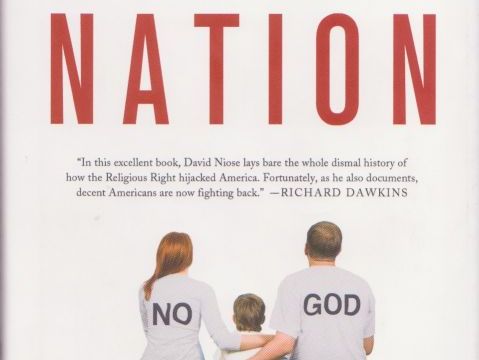Three Ways to Overcome Irrationality in the Voting Booth

Does democracy require universal suffrage? Yes, I think so. So does the Supreme Court. Economist Bryan Caplan isn’t so sure. A few years ago Caplan identified several pernicious biases individuals tote with them into the voting booth and suggested that we the people are to blame for bad economic policies. Washington is “broken,” as everyone campaigning for federal office loves to say, because Americans are irrational and vote accordingly. Here are Caplan’s suggestions:
But what — if anything — can be done to improve outcomes, taking the supremacy of democracy over the market as fixed? The answer depends on how flexibly you define “democracy.” Would we still live in a democracy if you needed to pass a test of economic literacy to vote? If you needed a college degree?
These proposals are not tongue-in-cheek. Caplan argues that knowledge of basic economic principles and a college education would “raise the economic understanding of the median voter, leading to more sensible policies.” Questioning the principle of one person, one vote might seem retrograde, but Caplan urges us to consider the idea in a new light:
Franchise restrictions were historically used for discriminatory ends, but that hardly implies that they should never be used again for any reason. A test of voter competence is no more objectionable than a driving test. Both bad driving and bad voting are dangerous not merely to the individual who practices them, but to innocent bystanders.
I’ll look at this proposal in a moment. But first, a word of context. One of the most interesting contentions of Caplan’s book is that voters are “rationally irrational”: since individuals do not pay much of a price for their foolish political views, but love believing them, a cost-benefit analysis counsels in favor of holding on to them. It is rational (from a self-interested point of view) to be irrational about politics. The same isn’t true of shopping or driving. If you buy organic milk at the corner store for $6 when you could just as easily get it for $4 at the grocery store, you literally pay a price. If you drive recklessly, you risk getting yourself into an accident. By contrast, if you vote based on an “antiforeign bias” (that is, you “underestimate the economic benefits of interaction with foreigners”), say, you would experience your foolishness as costless (since the marginal effect of your vote is so slight) while helping to deprive the polity of the advantages of trade with other nations. (One possible implication Caplan doesn’t explore: if you were suddenly made sovereign, and your word became the law, you’d be a lot more careful and you’d probably tweak many of your political views. Maybe this helps to explain why presidents often deviate from campaign principles when governing.)
Back to those economic literacy tests. If irrationality is so entrenched in the act of voting for so many of us, should we consider Caplan’s suggestion of limiting the franchise to the most competent among us? Should voters really need to draw a supply/demand curve, rehearse the advantages and disadvantages of outsourcing and identify the percentage of the federal budget that goes to foreign aid before they pull the lever? I shudder to ponder the passing rate such a quiz would yield. And I wonder how much better off we’d be if all voters really were screened in this way.
Beyond this, of course, the proposal is a non-starter politically. Whether the principle of one person, one vote is irrational or not according to Caplan, it is a very well entrenched principle of American democracy. Caplan seems to acknowledge as much when he moves on to an alternative proposal:
A more palatable way to raise the economic literacy of the median voter is by giving extra votes to individuals or groups with greater economic literacy. Remarkably, until the passage of the Representation of the People Act of 1949, Britain retained plural voting for graduates of elite universities and business owners….Since more educated voters think more like economists, there is much to be said for such weighting schemes.
I’m not sure how much more palatable this would be. In a country where anti-elitism and anti-intellectualism are campaign strategies, proposing extra votes for Ivy League graduates seems just as far beyond the pale as Caplan’s other suggestions. So that leaves Caplan’s mildest proposal: “reduce or eliminate efforts to increase voter turnout.” He would love Florida’s new highly restrictive voter registration law.
Supreme Court precedent and the Voting Rights Act of 1965 to one side, is there an argument to be made for limiting or enhancing the franchise for certain individuals or groups of people? When voters go to the polls 99 days from today, should they have to pass a test before punching their chads? Should Big Think readers get an extra vote? Warily, I throw it open to you.
To follow Steven Mazie on Twitter click here: @stevenmazie
Image credit: Konstantinos Kokkinis/shutterstock.com





